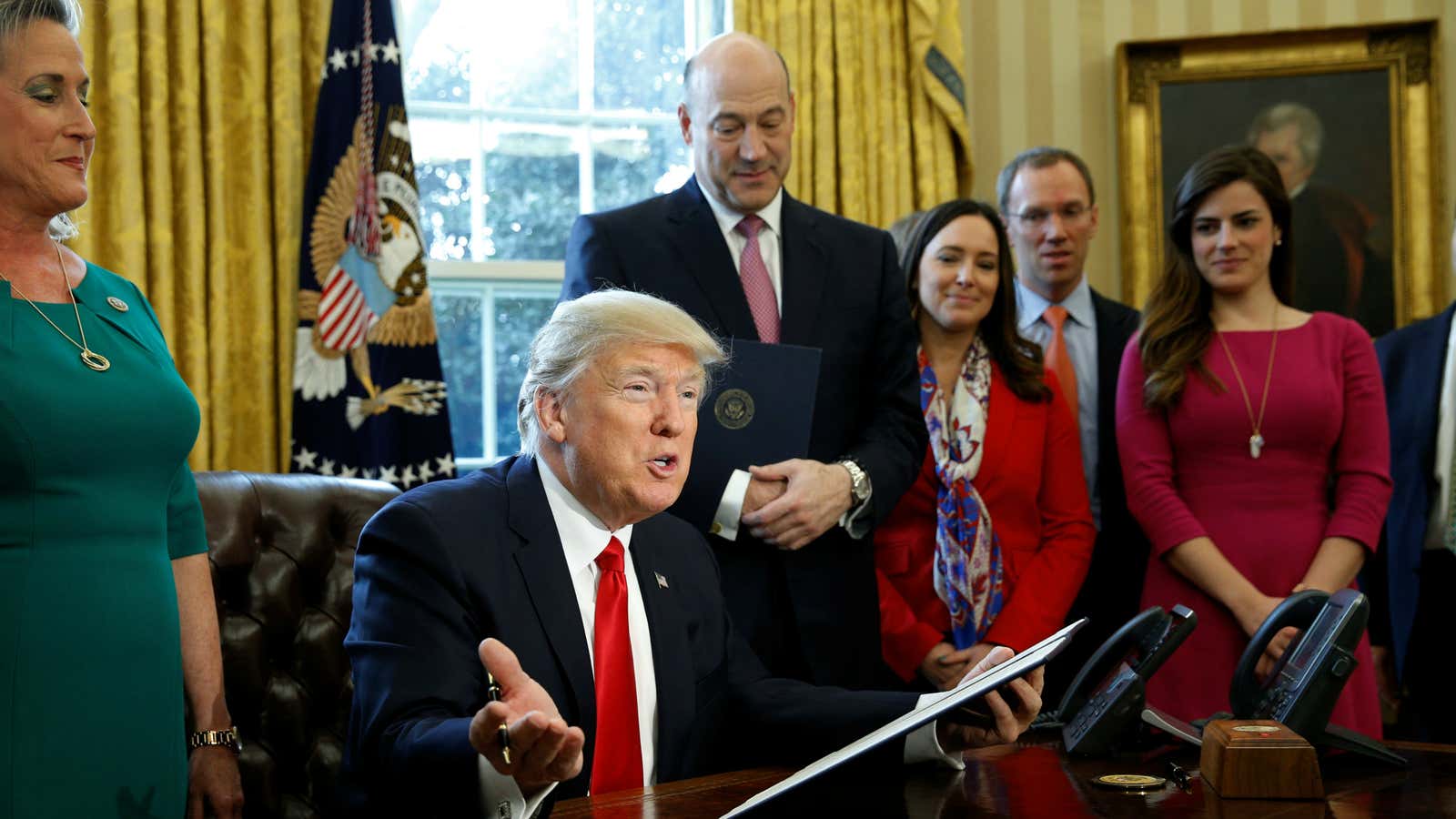On Feb. 3, US president Donald Trump signed an executive order ordering the Treasury Secretary to review the laws and regulations governing the financial system. It was the first concrete step towards his promise, as a candidate, to dismantle the Dodd-Frank Act—the more than 800 pages (pdf) of laws, passed in the wake of the 2008 financial crisis, that were supposed to bring an end to “too big too fail” and stop banks using debt to trade for their own profit.
Phil Angelides was chairman of the Financial Crisis Inquiry Commission from 2009 to 2011, created by the US Congress to investigate the causes of the crisis. Angelides got to see the impacts up close: He oversaw 700 witness testimonies and public hearings from Miami to Sacramento, while interviewing banks and regulators. Dodd-Frank was passed while he was on the job. He said yesterday that Trump’s plans to pull it apart were ”insane.” Here is his full statement:
In the wake of the financial crisis, millions of families lost their homes. Millions of people lost their jobs. The economy was wrecked and communities across the country were devastated. Big Wall Street banks admitted wrongdoing and paid tens of billions of dollars in fines. And now, with bankers at his side, President Trump begins to rip apart protections put in place to protect America’s families and our economy. Insane.
Trump’s main argument for dismantling the law is that it stifles lending. ”I have so many people, friends of mine, who have nice businesses who can’t borrow money,” he said at a meeting with CEOs the day he signed the order. Among them were leaders of the big Wall Street banks who will benefit the most from having Dodd-Frank gutted. “There’s nobody better to tell me about Dodd-Frank than Jamie,” Trump said, pointing to Jamie Dimon, the CEO of JPMorgan Chase.
In the markets, bank stocks have been one of the biggest winners from Trump’s election, as investors have anticipated deregulation.
Admittedly, Dodd-Frank is long, complicated and still not fully implemented. However, it has sought to shield the public from the actions of banks whilst holding lenders more accountable by creating the Consumer Financial Protection Bureau and the Financial Stability Oversight Council. Trump and congressional Republicans will find it difficult to completely repeal the law (paywall) but they can chip away at parts of it by undoing specific rules, using congressional review laws and budget processes to rein in other aspects.
How this will sit with Trump’s voters remains to be seen. Though he promised to dismantle Dodd-Frank during the election campaign, Trump also said that he was ”not going to let Wall Street get away with murder” and pledged to tax the financial industry. But since his election he’s surrounded himself with Wall Streeters, several from Goldman Sachs. And on top of dismantling Dodd-Frank, Trump plans to get rid of the fiduciary rule that orders retirement investment advisers have to act in the best interests of their clients. Senator Elizabeth Warren, one of the chief campaigners for tighter financial regulation, had a warning for the president:
